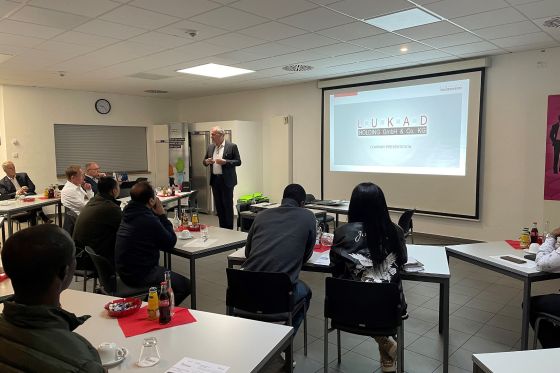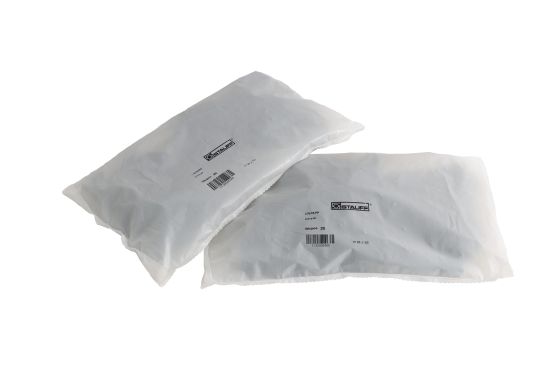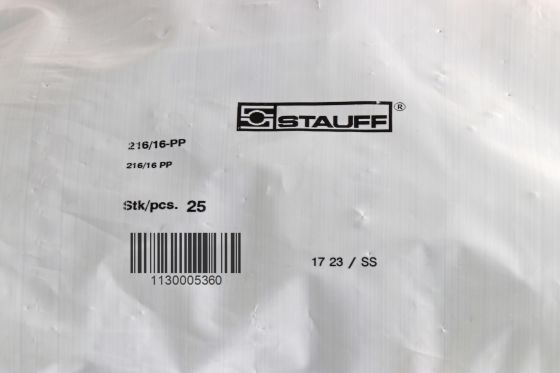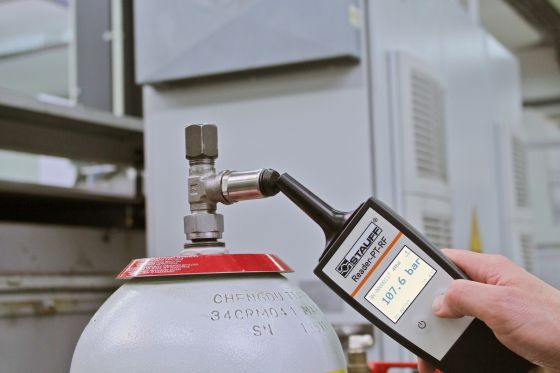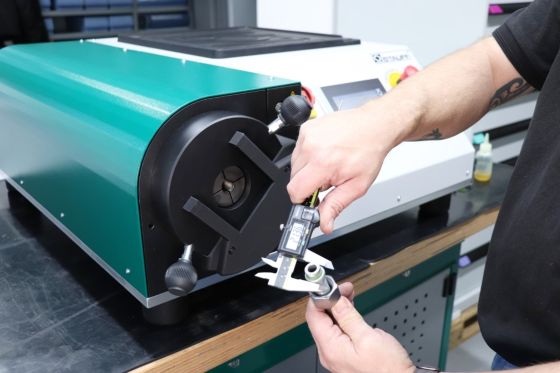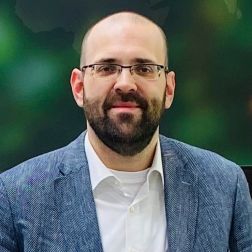15 professionals from Ghanaian companies in the plastics industry and recycling sector are currently learning about new technologies, recycling and sustainability concepts during a three-week training course. The programme is run by the Kunststoff-Institut Lüdenscheid (KIMW).
In the course of this, in addition to the STAUFF manufacturing plant for pipe, tube and hose clamps in Plettenberg-Ohle (Germany), the closure manufacturer MENSHEN in Finnentrop (Germany) and the waste management company A. Menshen in Werdohl (Germany) were visited on Tuesday. All three companies belong to LUKAD Holding, which bundles the companies of the founding and owning family Menshen.
In addition to plant tours and presentations, the aim of all three companies was to exchange experiences and to demonstrate the sensible use of recyclates or the recyclability of materials by means of best practice examples. The African state of Ghana is looking for new solutions and contacts to establish a circular economy to solve its waste problem.
Use of Recycled Material at STAUFF
"At STAUFF, the focus is on increased sustainability," says General Manager Carsten Krenz. Together with Plant Manager Ulrich Levermann, the group of visitors was shown the production of plastic and metal articles at the site in Plettenberg-Ohle, where state-of-the-art manufacturing processes are used.
The "STAUFF Green" label is based on the concept presented by the European Commission, which aims to reduce net greenhouse gas emissions in the European Union to zero by 2050. The main focus is on sustainability in the ecological sense. This includes, in particular, environmental and climate protection. Social and economic aspects are also included as essential components.
"The use of recycled material in the area of bag packaging and in the production of plastic components for STAUFF pipe, tube and hose clamps are two best-practice examples of sustainable integration of the circular economy," says Plant Manager Ulrich Levermann.
At the same time, the company is focusing on the general avoidance of packaging material and the optimisation of the logistics chain at all locations.
Plastic as a material continues to offer great potential for achieving STAUFF's sustainability goals.
Sustainability in the Packaging and Waste Management Industry
Dr Klaus Skrodolies, Head of Innovation Management at MENSHEN, emphasised the opportunities and challenges of recycling in plastic packaging as well as MENSHEN solution approaches on the basis of the planned EU Packaging and Packaging Waste Regulation (PPWR) during a company tour in Finnentrop.
The waste management industry is one of the most innovative and successful industries in Germany. The visit to A. Menshen GmbH & Co. KG in Werdohl was an ideal complement to the excursion. Today, waste is no longer disposed of, but sensibly recycled. This is thus a significant aspect of the circular economy and makes an important contribution to achieving the climate targets. Managing Director Dirk Janssen explained this to the interested guests.
The group was not only very impressed by the size of the site, but especially by the well-organised processes and the variety of materials. Thus, in addition to more than 50 years of reliability, the focus is also on the orientation in terms of even cleaner, even more modern and even more efficient.
Three-Week Training Course mandated by GIZ
The visit to the three LUKAD companies is part of a three-week training course on plastics recycling organised by the Kunststoff-Institut Lüdenscheid (KIMW) on behalf of the Gesellschaft für internationale Zusammenarbeit (GIZ). The GIZ has the task of supporting emerging and developing countries in their economic development through targeted training measures.
In general, Africa suffers from an inadequate infrastructure for waste management, whereby Ghana, as one of the most developed countries, plays a pioneering role for the continent. Through a GIZ application process, a total of 15 specialists from Ghanaian companies were recruited to expand their know-how during a study tour in Germany.
The course is intended to help Ghanaian companies implement the knowledge gained in their own processes. On the one hand, this contributes to relieving the burden on the local environment and, at the same time, is intended to make Ghanaian companies interesting for possible cooperation with German companies.

Newsletter Subscription
Receive automatic e-mail notifications about new posts on the STAUFF Blog


